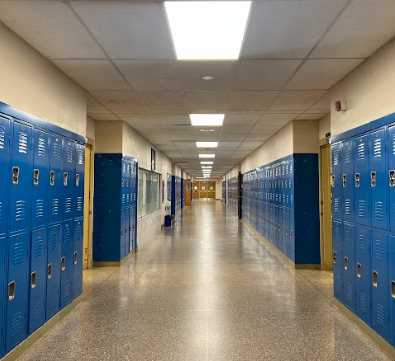The five-day school weeks are starting to be a weight on both students and teachers as just over 2,100 schools in 26 states have switched to a four-day school week. But is the solution to this weight turning five-day school weeks to four-day school weeks?
Four-day school week benefits for teachers
There are some benefits of the four-day school week for teachers. A benefit for them would be during their one-off day it would give teachers more time to prepare new lessons and catch up on grading. Teachers do get time to get some work done during the day being named as prep. Each teacher is given one hour and 30 minutes prep once a day. Barbara Rogers art teacher explained that prep is not enough time for new lessons and grading, so there has to be work done out of the school building. In conclusion the off/virtual day would give teachers more time to get their work done.
Another positive is staff morale improved with a four-day school week. After the pandemic, many teachers felt undervalued. Along with the improved school climate and morale, there were less fights and bullying instances found in schools that reduced the school week.
Cons for teachers
On the other hand, there are cons to the four-day weeks for teachers. If they were to make one of the off days online it would bring both students and teachers behind schedule. For teachers it would be a struggle for them to get their students to do their work. As seen during the pandemic when school was online most students would not do their work.
Oregon State University conduct comprehensive analyses of a reduced school week and found lower math scores among high school students with a four-day school week. “We find that students who have switched to the four-day school week see reduced achievement when they get to 11th grade. We attribute that to drops in instructional time,” explained Paul Thompson, an associate professor of economics at Oregon State University. This study focused on years prior to the pandemic before the implementation of asynchronous school days.
Four-day school week benefits for students
There are benefits for students like I have mentioned attendance plays a huge part. It would give students the mental break they need for the week. According to an article 60%-70% students go to school sleep deprived. Needing one day just to refresh would have a positive impact on students.
Rachel Suwu sophomore in Colonia high school explained that as a student sitting in all four classrooms for one hour and 30 minutes, a total of six hours of classes can get tiring. This would be pulling the topic of mental health. Students can be going into their classes tired and not being able to work to their full potential which would be impacting the performance of both them and their teacher. It can twist the performance of the teacher in a negative way showing they aren’t working their best for their students.
Cons for students
In contrast, the negative impact it can bring to students isn’t imaginary. As seen during the pandemic online schooling more than 80% of public school students reported a negative impact. For example, the negative impact as in students not doing their work and piling up even more than it already has. Giving students the more stress of work and the attempt of trying to catch up. In addition, giving more work to teachers piling on the work from the regular school day.
Positive impact on the district
There are also benefits for the district. The benefits it could bring would be not spending as much money on water and electricity. For 6-8 hours and five days not including sports on Saturdays a lot of water and electricity is being used. It is estimated that schools save 1% to 2% by shortening the school week by a day.
With a decline in the number of teachers and substitutes, a four-day week would help the district save money. Thoughtco.com suggested, “A four-day school week can improve student and teacher attendance. Appointments for doctors, dentists, and home maintenance services are able to be scheduled on that extra day off. Doing this naturally boost attendance for both teachers and students. ”
Many districts over the state and the nation have a deficit of bus drivers. Transportation costs would be reduced and less drivers would be needed if the school week was shortened.
The hope of many school districts reducing the number of days in the physical classroom is to combat the eminent teacher shortage. Many school officials feel a four-day work week might be enticing to people choosing a career. “The number of teacher applications that we’ve received have gone up more than 4-fold,” Dale Herl, superintendent of the Independence, Missouri school district, told CBS News last month.












